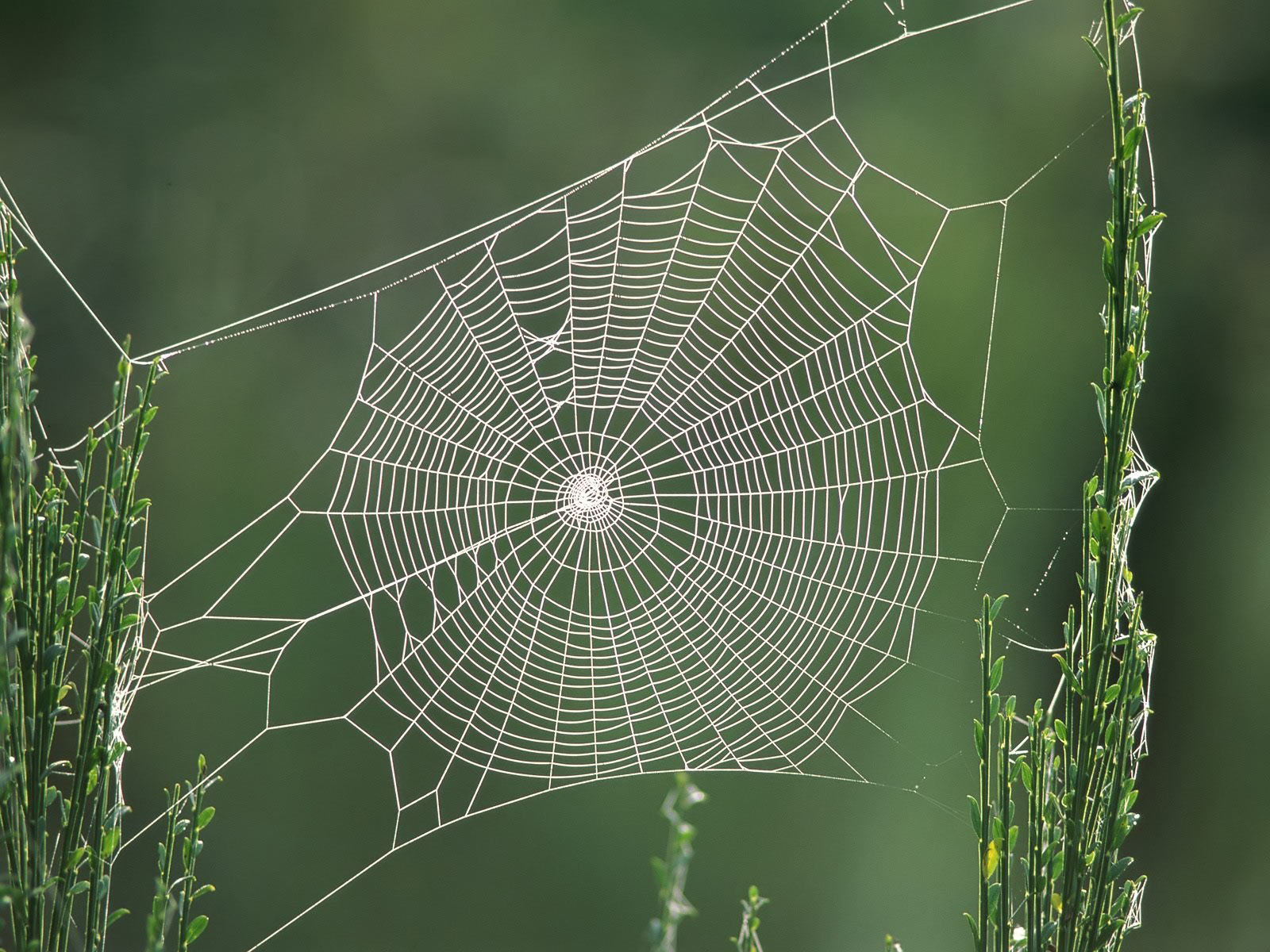We reach more than 65,000 registered users in Dec!! Register Now

Spiders understand the "music" of their web
- June 08, 2014
- 921 Views
- 0 Likes
- 0 Comment
The sound of a spi≠der web, plucked like a gui≠tar string, pro≠vides its in≠hab≠i≠tants with in≠forma≠t≠ion about prey, mates, and even we≠b's struc≠tur≠al con≠di≠tion, sci≠en≠tists have found. The spi≠ders use that qual≠ity by "tun≠ing" the silk, they say: con≠trol≠ling and ad≠just≠ing its prop≠er≠ties, and threads' ten≠sions and in≠ter≠con≠nec≠tiv≠i≠ties. The find≠ing comes from ...
The sound of a spi≠der web, plucked like a gui¬≠tar string, pro¬≠vides its in¬≠hab¬≠i¬≠tants with in¬≠forma¬≠t¬≠ion about prey, mates, and even we¬≠b's struc¬≠tur¬≠al con¬≠di¬≠tion, sci¬≠en¬≠tists have found.
The spi¬≠ders use that qual¬≠ity by ‚Äútun¬≠ing‚ÄĚ the silk, they say: con¬≠trol¬≠ling and ad¬≠just¬≠ing its prop¬≠er¬≠ties, and threads' ten¬≠sions and in¬≠ter¬≠con¬≠nec¬≠tiv¬≠i¬≠ties.
The find­ing comes from re­search­ers from the Uni­vers­i­ties of Ox­ford, Strath­clyde, and Shef­field in the U.K., who fired bul­lets and lasers at spi­der silk to study how it vi­brates. They found that un­like many oth­er ma­te­ri­als, spi­der silk is tun­a­ble to a wide range of har­mon­ics, or sim­ple pitch rela­t­ion­ships.
The find­ings, to be re­ported in the jour­nal "Ad­vanced Ma­te­ri­als", not only re­veal more about spi­ders but could al­so in­spire a wide range of new tech­nolo­gies, such as ti­ny light-weight sen­sors, the re­search­ers said.
‚ÄúMost spi¬≠ders have poor eye¬≠sight and rely al¬≠most ex¬≠clu¬≠sively on the vibra¬≠t¬≠ion of the silk in their web for sen¬≠so¬≠ry in¬≠forma¬≠t¬≠ion,‚ÄĚ said Beth Mor¬≠ti¬≠mer of the Ox¬≠ford Silk Group at Ox¬≠ford Uni¬≠vers¬≠ity, who led the re¬≠search. ‚ÄúThe sound of silk can tell them what type of meal is en¬≠tan¬≠gled in their net and about the in¬≠ten¬≠tions and qual¬≠ity of a pro¬≠spec¬≠tive mate. By pluck¬≠ing the silk like a gui¬≠tar string and lis¬≠ten¬≠ing to the ¬Ďe¬≠choes' the spi¬≠der can al¬≠so as¬≠sess the con¬≠di¬≠tion of its we¬≠b.‚ÄĚ
To study the son­ic prop­er­ties of the spi­der's gos­sa­mer threads the re­search­ers used ultra-high-speed cam­er­as to film the threads as they re­sponded to the im­pact of bul­lets. In ad­di­tion, lasers were used to make de­tailed mea­sure­ments of even the small­est vibra­t­ion.
‚ÄúThe fact that spi¬≠ders can re¬≠ceive these na¬≠no¬≠me¬≠ter [millionth-of-a-millimeter] vibra¬≠t¬≠ions with or¬≠gans on each of their legs, called slit sen¬≠sil¬≠lae, really ex¬≠em¬≠pli¬≠fies the im¬≠pact of our re¬≠search about silk prop¬≠er¬≠ties found in our stu¬≠dy,‚ÄĚ said Shira Gor¬≠don of the Uni¬≠vers¬≠ity of Strath¬≠clyde, a co-au¬≠thor of the re¬≠port.
‚ÄúThese find¬≠ings fur¬≠ther dem¬≠on¬≠strate the out¬≠stand¬≠ing prop¬≠er¬≠ties of many spi¬≠der silks that are able to com¬≠bine ex¬≠cep¬≠tion¬≠al tough¬≠ness with the abil¬≠ity to trans¬≠fer del¬≠i¬≠cate in¬≠forma¬≠t¬≠ion,‚ÄĚ said Pro¬≠fes¬≠sor Fritz Voll¬≠rath of the Ox¬≠ford Silk Group at Ox¬≠ford Uni¬≠vers¬≠ity, an au¬≠thor of the pa¬≠per. ¬ĎThese are traits that would be very use¬≠ful in light-weight en¬≠gi¬≠neer¬≠ing and might lead to nov¬≠el, built-in ¬Ďin¬≠tel¬≠li¬≠gent' sen¬≠sors and ac¬≠tu¬≠a¬≠tors.‚ÄĚ
‚ÄúSpi¬≠der silks are well known for their im¬≠pres¬≠sive me¬≠chan¬≠i¬≠cal prop¬≠er¬≠ties, but the vibra¬≠t¬≠ional prop¬≠er¬≠ties have been rel¬≠a¬≠tively over¬≠looked and now we find that they are al¬≠so an awe¬≠some com¬≠mu¬≠nica¬≠t¬≠ion tool,‚ÄĚ said Chris Hol¬≠land of the Uni¬≠vers¬≠ity of Shef¬≠field, anoth¬≠er co-au¬≠thor.
Added Mor¬≠ti¬≠mer: ‚ÄúIt may even be that spi¬≠ders set out to make a web that ¬Ďsounds right' as its son¬≠ic prop¬≠er¬≠ties are in¬≠ti¬≠mately re¬≠lat¬≠ed to fac¬≠tors such as strength and flex¬≠i¬≠bil¬≠ity.‚ÄĚ
![World_Biggest_Spider_of_Huge_Size_with_Big_Legs[1]](http://machprinciple.com/wp-content/uploads/2014/06/World_Biggest_Spider_of_Huge_Size_with_Big_Legs1-1024x575.png)
 
Source : http://www.world-science.net









